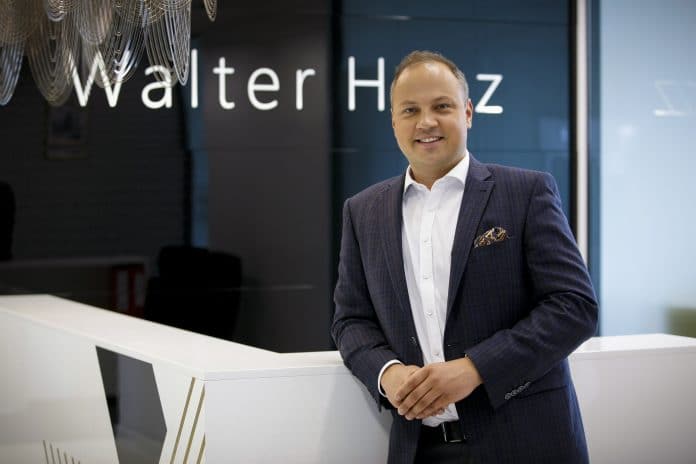Real estate market is not indifferent to world events and changes in the global economy. The mood among the participants of European industry meetings, including another edition of the international fair Expo Real in Munich, which ended a few days ago, turns out to be quite good. Investors remain relatively calm. They are verifying purchasing processes, revising previous expectations as to planned transactions. The current situation on the market creates space for opportunistic investors. We can observe a significant change – entities that previously purchased only ready-made assets are now interested in new development projects. The industry strikes a balance between rising construction and investment financing and property maintenance costs, rental rates and expected yields.
In the last three years, there has been plenty of investment capital on the market. Under the current conditions, however, funds find it more difficult to make investment decisions than in the previous periods of economic downturn, as it is more difficult to base analysis and valuations on factual data and objective calculations in such a volatile situation as today.
However, I think that the drastic increase in the costs of obtaining capital, which the market is now facing, may mobilize some investors to be more active.
Moreover, current interest rates are stimulating investments, which mean a potential increase of income from real estate as a result of indexation of rental rates. Rents are rising, both on the Warsaw market and in regional cities, where the return on investment has always been higher than in the capital.
Record high indexation rates
High inflation in the country and in the euro zone means that rent indexation rates will be the highest in years, which will also translate into higher revenues. The increase in rental rates is already reflected in higher appraisals. In Poland, rent increases are most visible in logistics, in the office market and in the PRS sector. Retail parks, followed by office buildings and warehouses stand out as the most interesting assets. The appetite for the latter has weakened the most, despite the continued strong demand, the historically lowest level of warehouse vacancies and the record-high amount of space under construction in Poland.
In the first half of this year, despite unprecedented events and the dynamic geopolitical situation, investors have located over 40 per cent more capital in Poland, compared to last year. They are interested in real estate located on the regional markets, which currently offer much greater access to attractive assets than a few years ago. However, it is difficult to forecast whether the investment market will close the entire year 2022 with such a good result as the first half of the year. Decisions have to be made in the climate of high inflation, rising interest rates and rising energy prices.
Longer decision-making processes
Poland is invariably perceived as a stable market with increasingly interesting resources of modern space, offering well-educated staff. However, the eyes of investors, especially from Asia and the US, are on the events taking place beyond our eastern border. Investments are also cooled by the specter of the global recession and the energy crisis. These are the main reasons for longer decision-making processes, which, as a consequence, will probably translate into a decline in investment volumes.
The conflict in Ukraine destabilized the whole of Europe. Due to the turbulence that 2022 has brought, investors in all European markets have to take into account the growing costs of financing and construction of investments, as well as the changing level of demand and a decrease in the availability of investment assets.
Residential slowdown
After the pace of production in the office sector in our country slowed down, it is the turn of the residential market. The largest number of suspended projects in Poland today, can be observed in the residential segment. Its direct cause is the freezing of loans for individuals. Some real estate development companies have already slowed down. Developers change plans, postpone construction or simply sell land with building permits.
In addition to the drop in demand for flats and the increase in construction costs, raising capital for the investment and its cost is also a huge challenge. All this heralds the inevitable slump in the residential market and the transformation of the sector towards private rental sector, which is currently the segment with the highest growth potential on our market. However, I do expect it to be a quick process and that it results in spectacular decline in housing prices.
Bartłomiej Zagrodnik, Managing Partner, CEO of Walter Herz


















